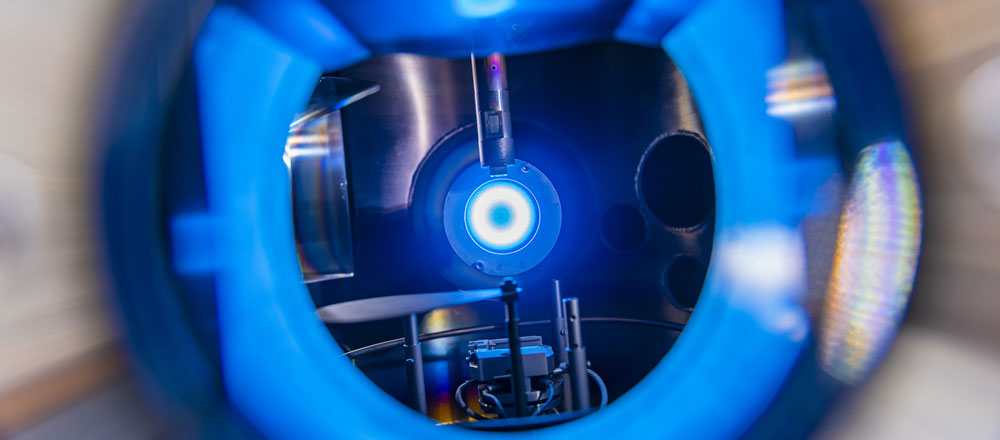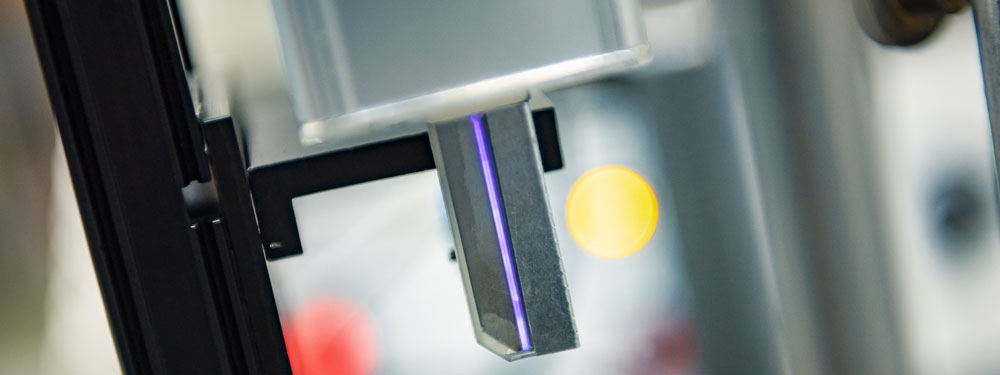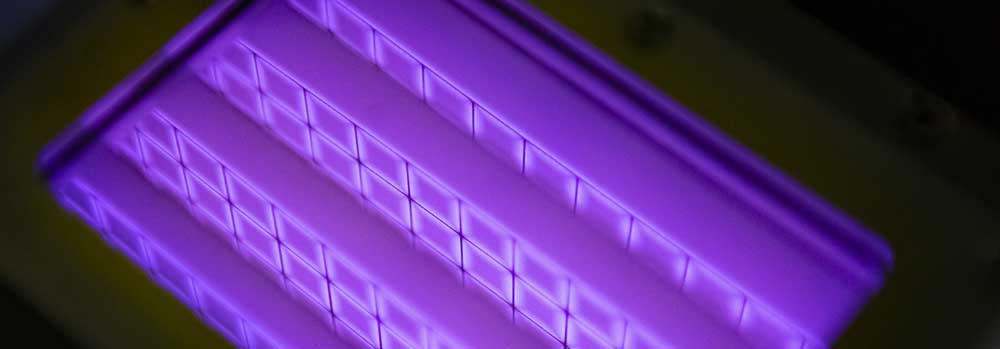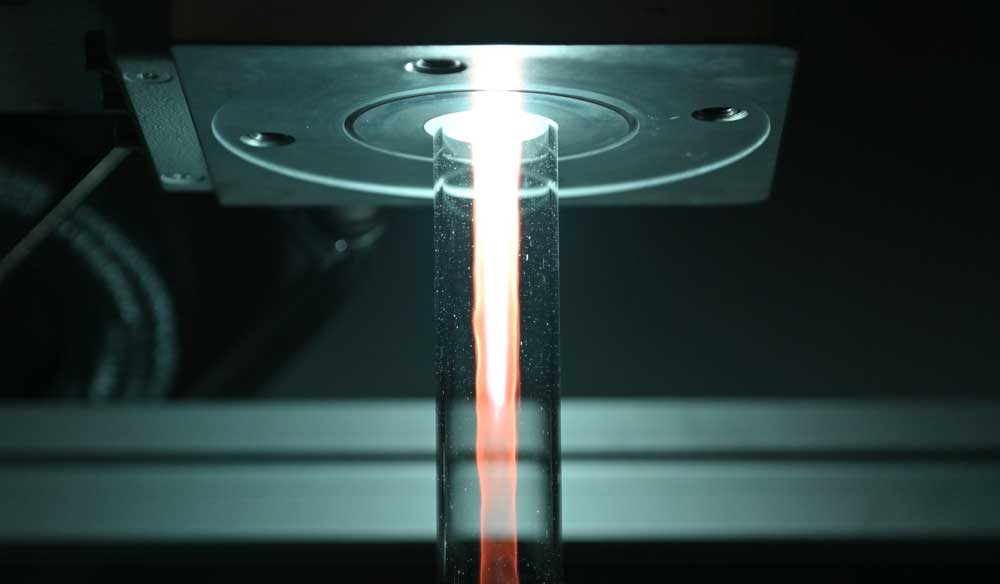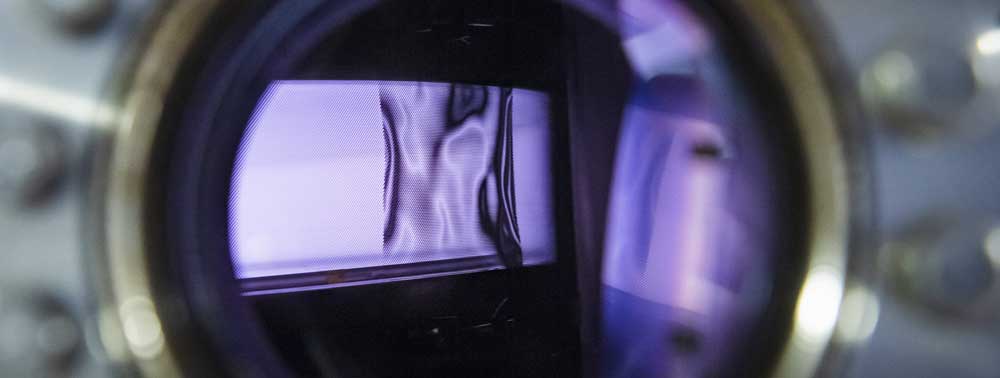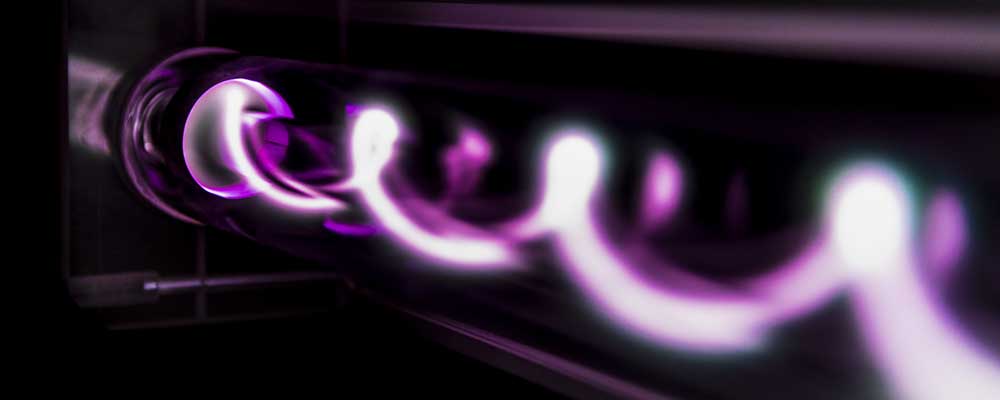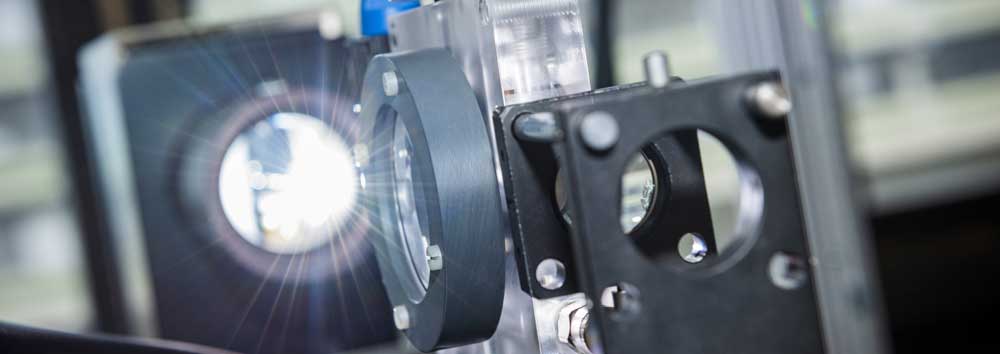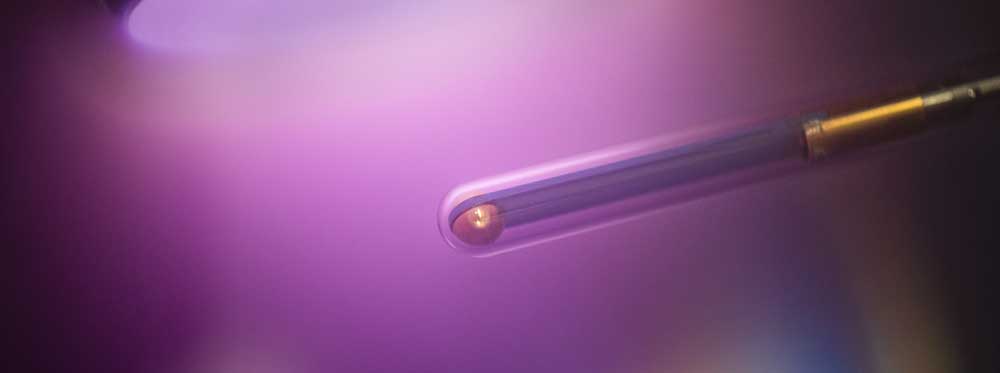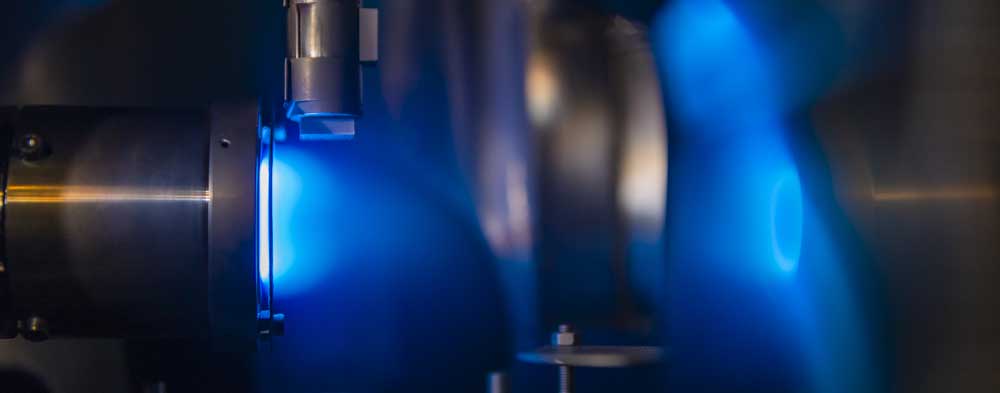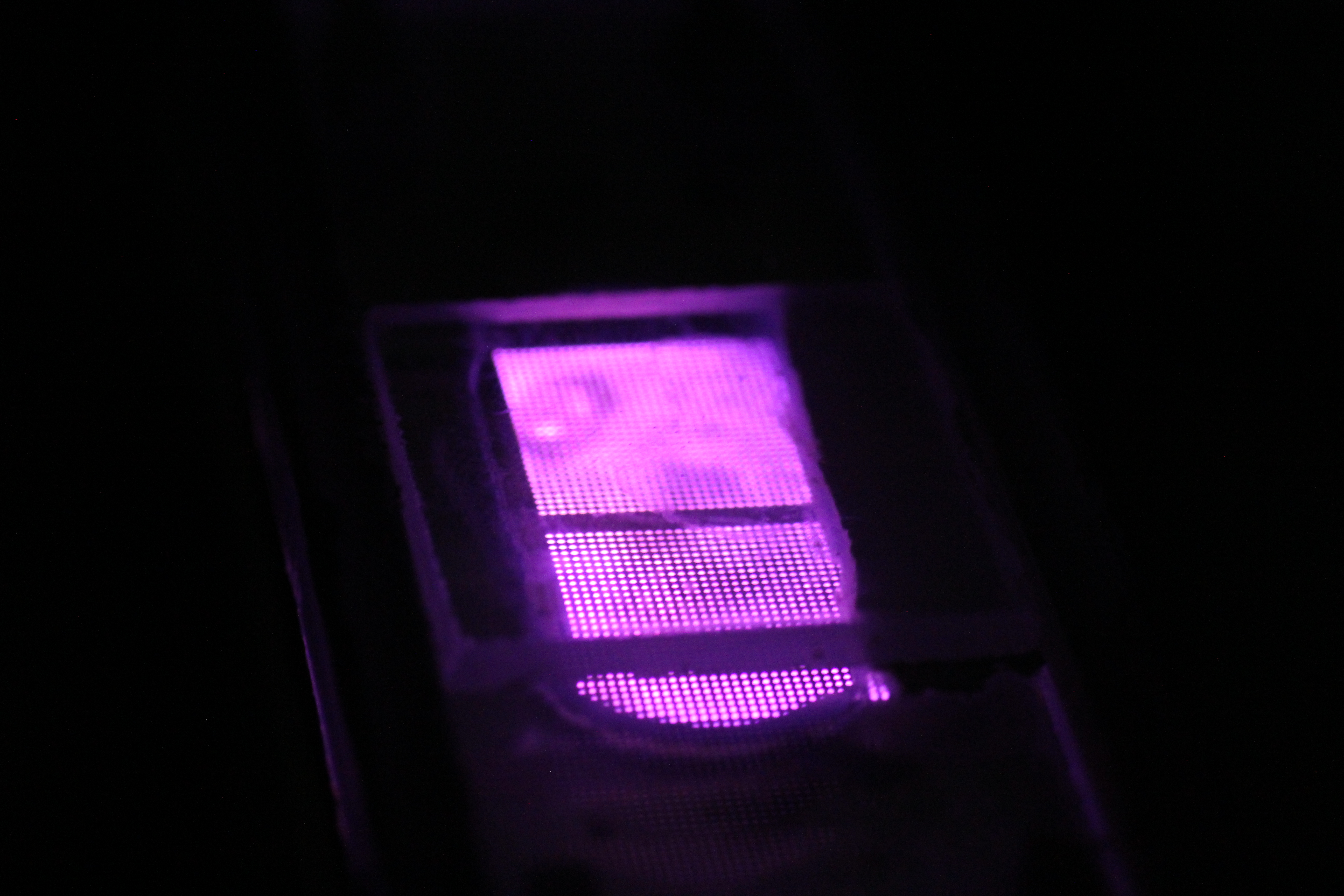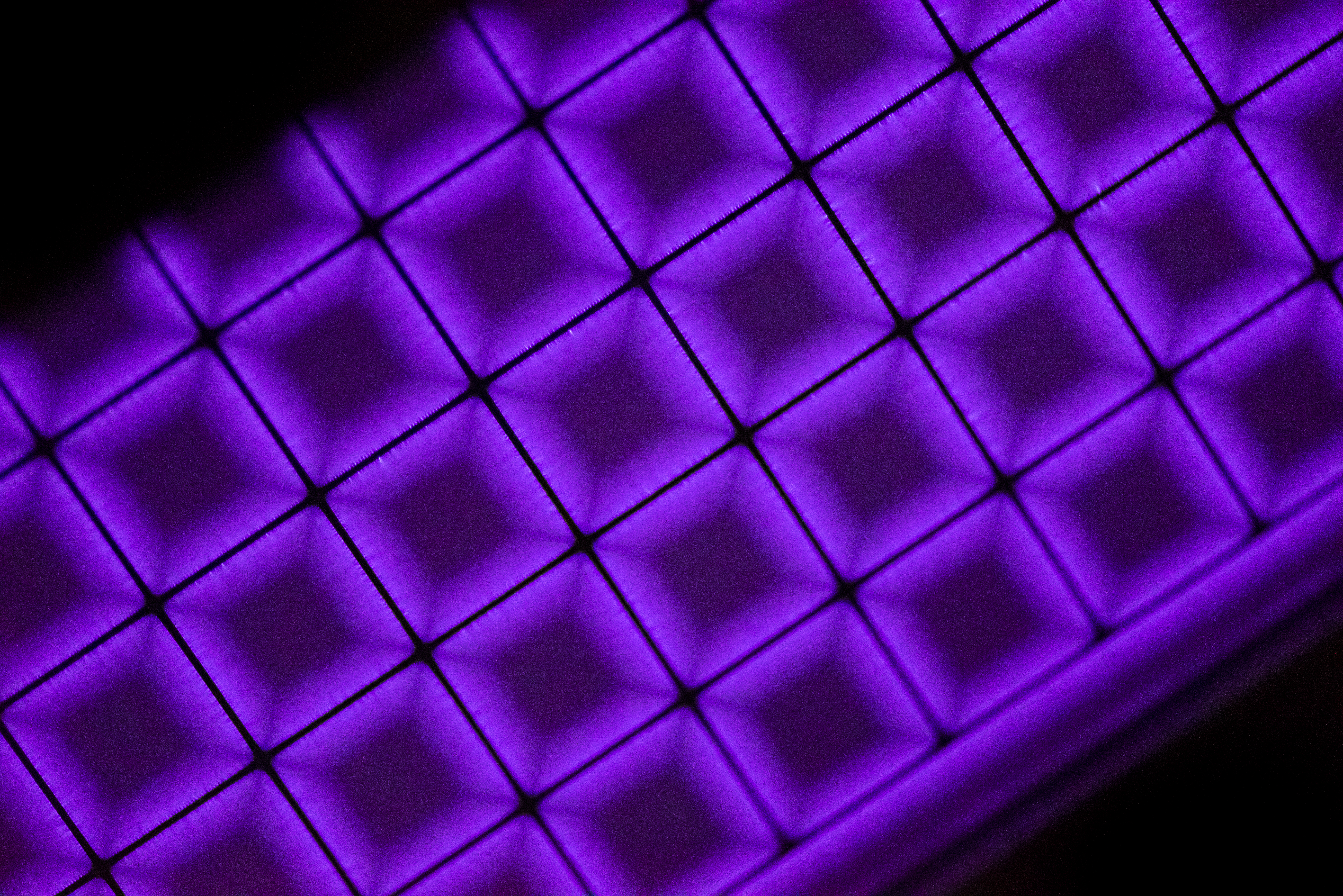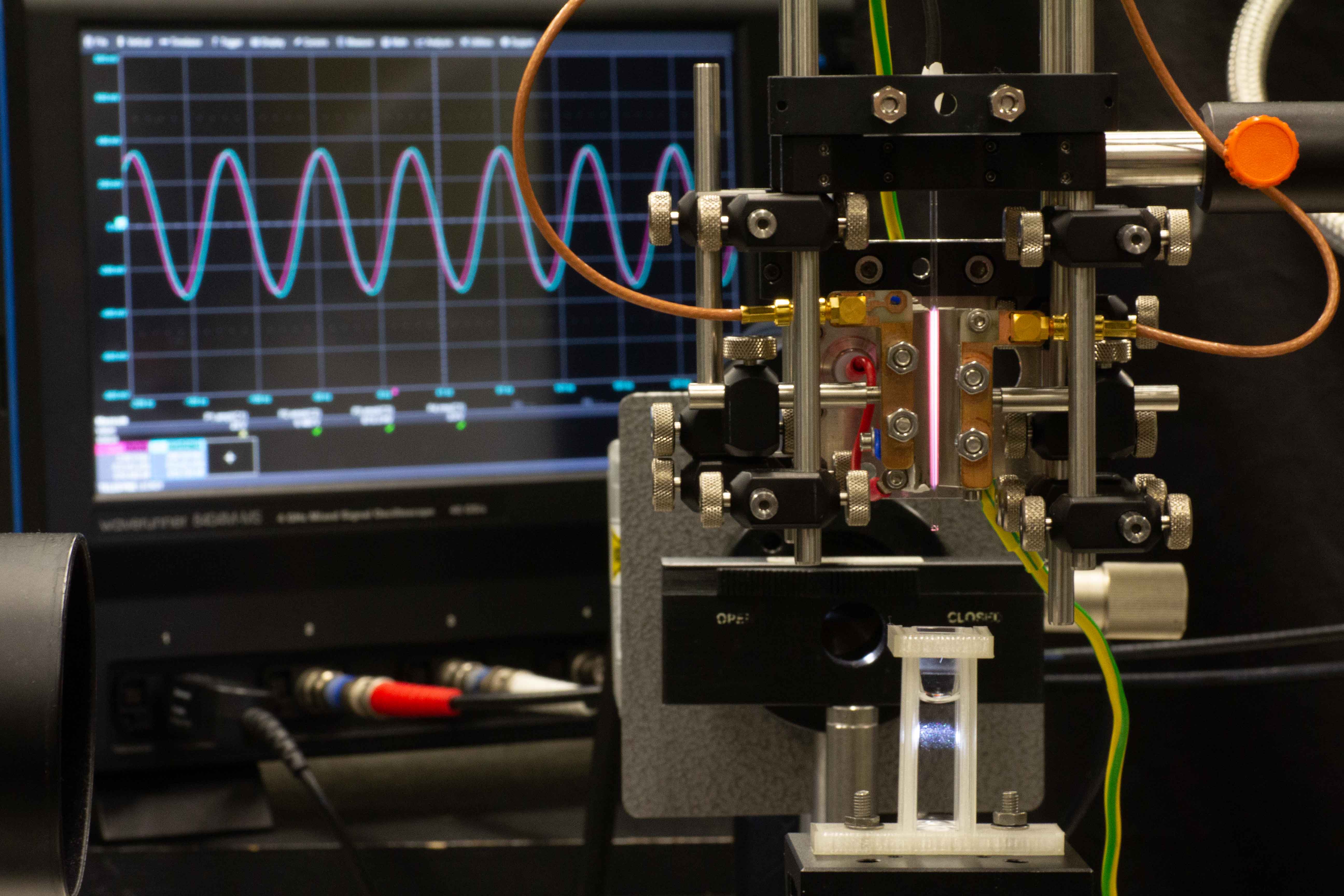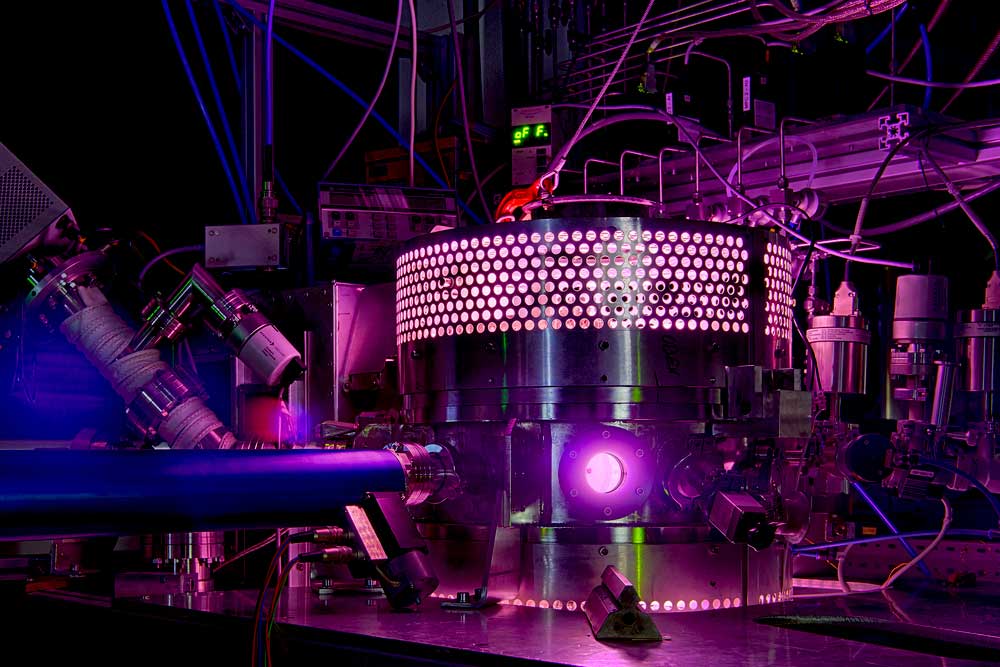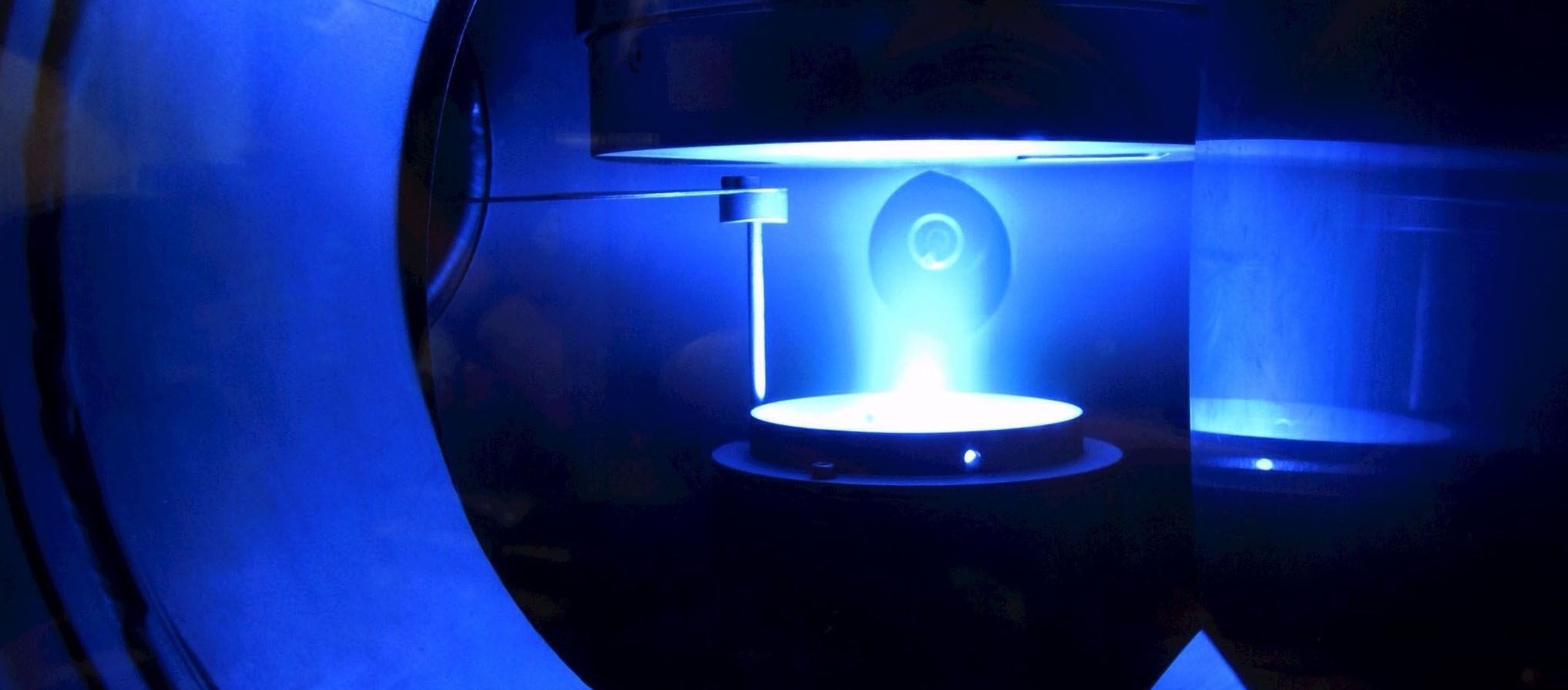- Details
5th Workshop on FAIR Data in Plasma Science (FDPS-V)
We are pleased to announce the 5th Workshop on FAIR Data in Plasma Science (FDPS-V), which will take place on 11–12 May 2026 at Ruhr-Universität Bochum (RUB), Germany. Virtual participation will also be available. The workshop continues the annual series of events on research data management within the low-temperature plasma (LTP) community. Its goal is to present current developments and to strengthen community exchange on this topic.
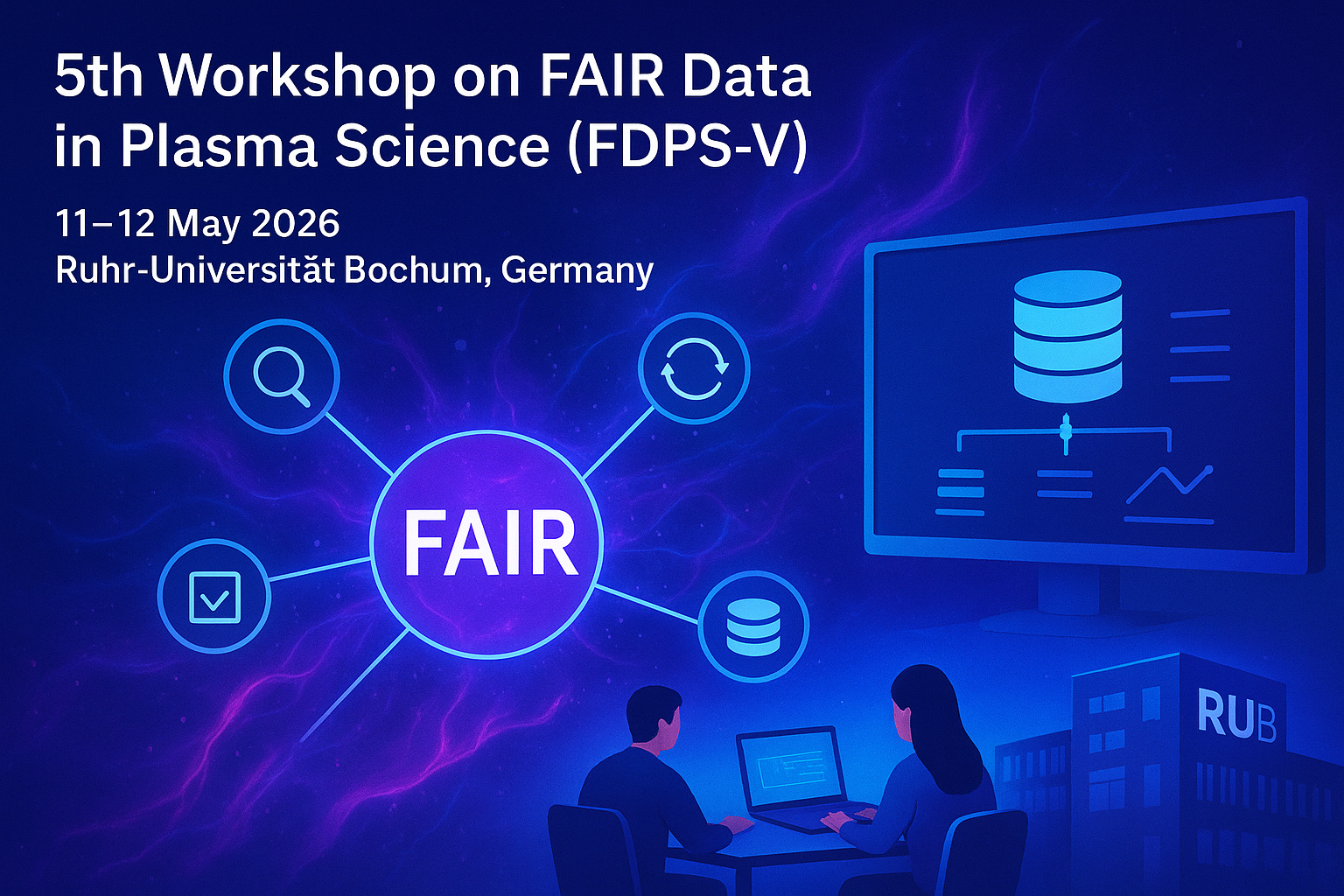 FDPS-V will provide an overview of successful solutions for collaborative research data management aimed at making data findable, accessible, interoperable, and reusable (FAIR), thereby fostering broader use of data-driven research methods. The program will cover best practices for everyday research activities as well as infrastructure tools for research data handling. Successful examples from plasma research groups and collaborative research centers will be presented. In addition, future developments and standardization efforts for data sharing and reporting within the LTP community will be discussed.
FDPS-V will provide an overview of successful solutions for collaborative research data management aimed at making data findable, accessible, interoperable, and reusable (FAIR), thereby fostering broader use of data-driven research methods. The program will cover best practices for everyday research activities as well as infrastructure tools for research data handling. Successful examples from plasma research groups and collaborative research centers will be presented. In addition, future developments and standardization efforts for data sharing and reporting within the LTP community will be discussed.
The workshop will be held as a hybrid event, and participation is free of charge. Please save the date and register via the link provided on the workshop website.
Attendance in person at INP is limited, so early registration is encouraged. The application form will be closed on 3th May, 2025.
- Details
Project week during the autumn holidays
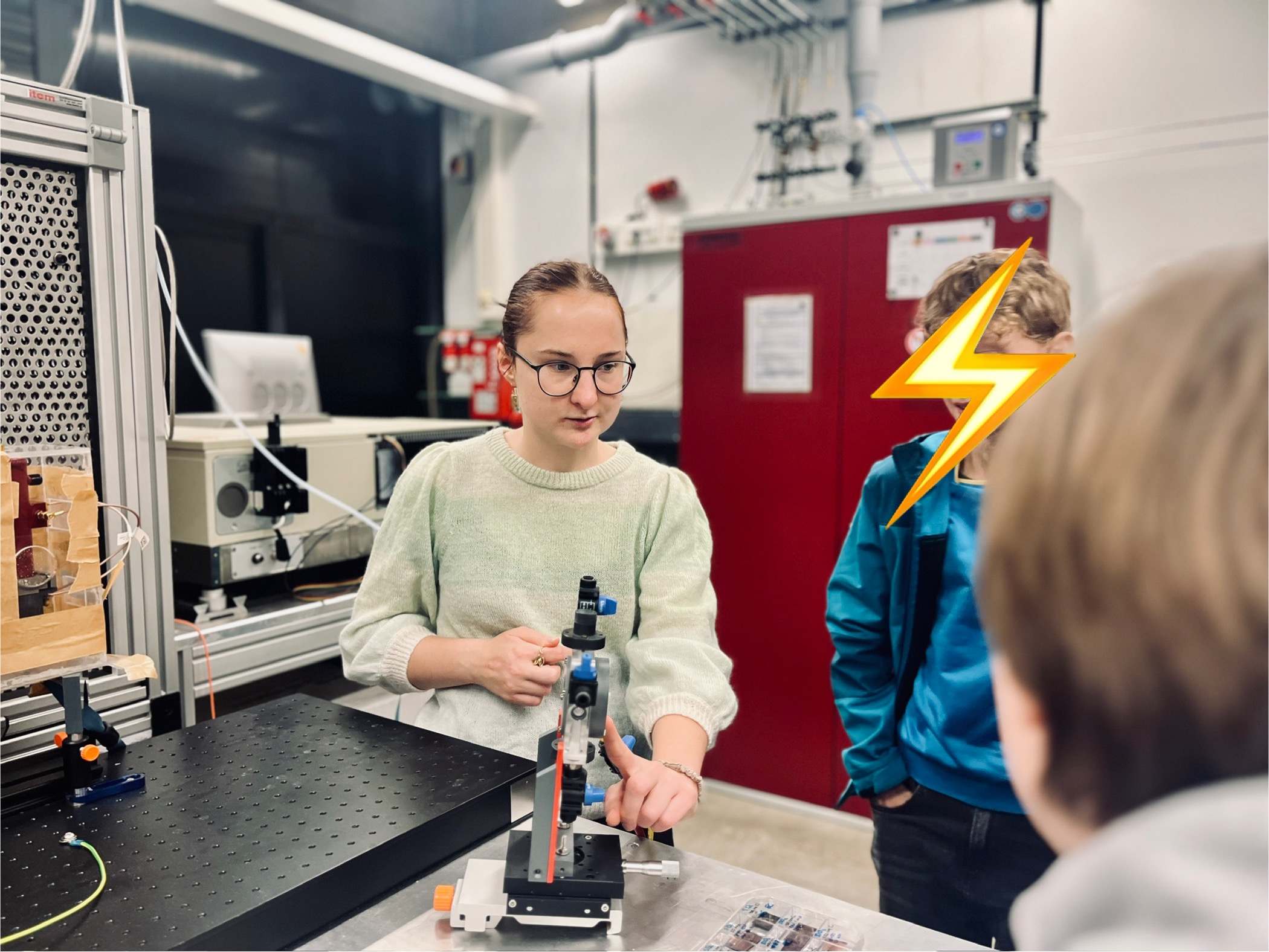 During the autumn holidays, highschool students in classes 8 and 9 enjoyed an eventful week full of physics, experiments and research at the Alfried Krupp Schülerlabor at the Ruhr University Bochum. In the workshop ‘From Plasma to Gold Coating,’ the students discovered the exciting characteristics of luminous gases and their numerous applications, such as in surface coating. They visited laboratories, observed researchers at work and learned that plasmas can also be ignited in liquids. In Prof. Scherer's lecture ‘From Diamonds, Pencil Tips and Symmetries,’ they learned how to (theoretically) turn a pencil tip into a diamond. Other highlights included a visit to the planetarium, meals together in the mensa and a physics duel followed by pizza. We would like to thank all participants for their curiosity and fascination for physics and are already looking forward to the next project week!
During the autumn holidays, highschool students in classes 8 and 9 enjoyed an eventful week full of physics, experiments and research at the Alfried Krupp Schülerlabor at the Ruhr University Bochum. In the workshop ‘From Plasma to Gold Coating,’ the students discovered the exciting characteristics of luminous gases and their numerous applications, such as in surface coating. They visited laboratories, observed researchers at work and learned that plasmas can also be ignited in liquids. In Prof. Scherer's lecture ‘From Diamonds, Pencil Tips and Symmetries,’ they learned how to (theoretically) turn a pencil tip into a diamond. Other highlights included a visit to the planetarium, meals together in the mensa and a physics duel followed by pizza. We would like to thank all participants for their curiosity and fascination for physics and are already looking forward to the next project week!
- Details
International School on Low Temperature Plasma Physics
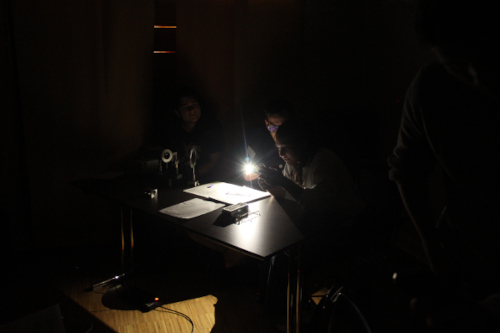
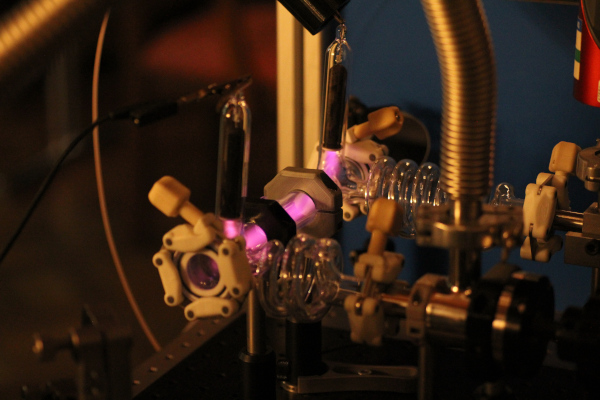 In the beginning of October, chosen Master and PhD students within the field of plasma physics, engineering and chemistry had the chance to get in contact with leading experts and lecturers. During the International School on Low Temperature Plasma Physics and the subsequent Master Class on Smart organic coatings by plasmas, fundamentals of plasmas and cutting-edge reserach has been discussed in lectures and during a poster session. Hands-on experience was obtained during three workshops lead by reknown professors from France and Portugal.
In the beginning of October, chosen Master and PhD students within the field of plasma physics, engineering and chemistry had the chance to get in contact with leading experts and lecturers. During the International School on Low Temperature Plasma Physics and the subsequent Master Class on Smart organic coatings by plasmas, fundamentals of plasmas and cutting-edge reserach has been discussed in lectures and during a poster session. Hands-on experience was obtained during three workshops lead by reknown professors from France and Portugal.
Since 28 years, the plasma school is organized by leading experts in the field of plasma physics. This year, the international chair was located at University of Mons in Belgium, while the local organizing team was located at Ruhr University in Bochum. The plasma school has also been funded by the CRC 1316 and the Research Department "Plasmas with Complex Interactions".
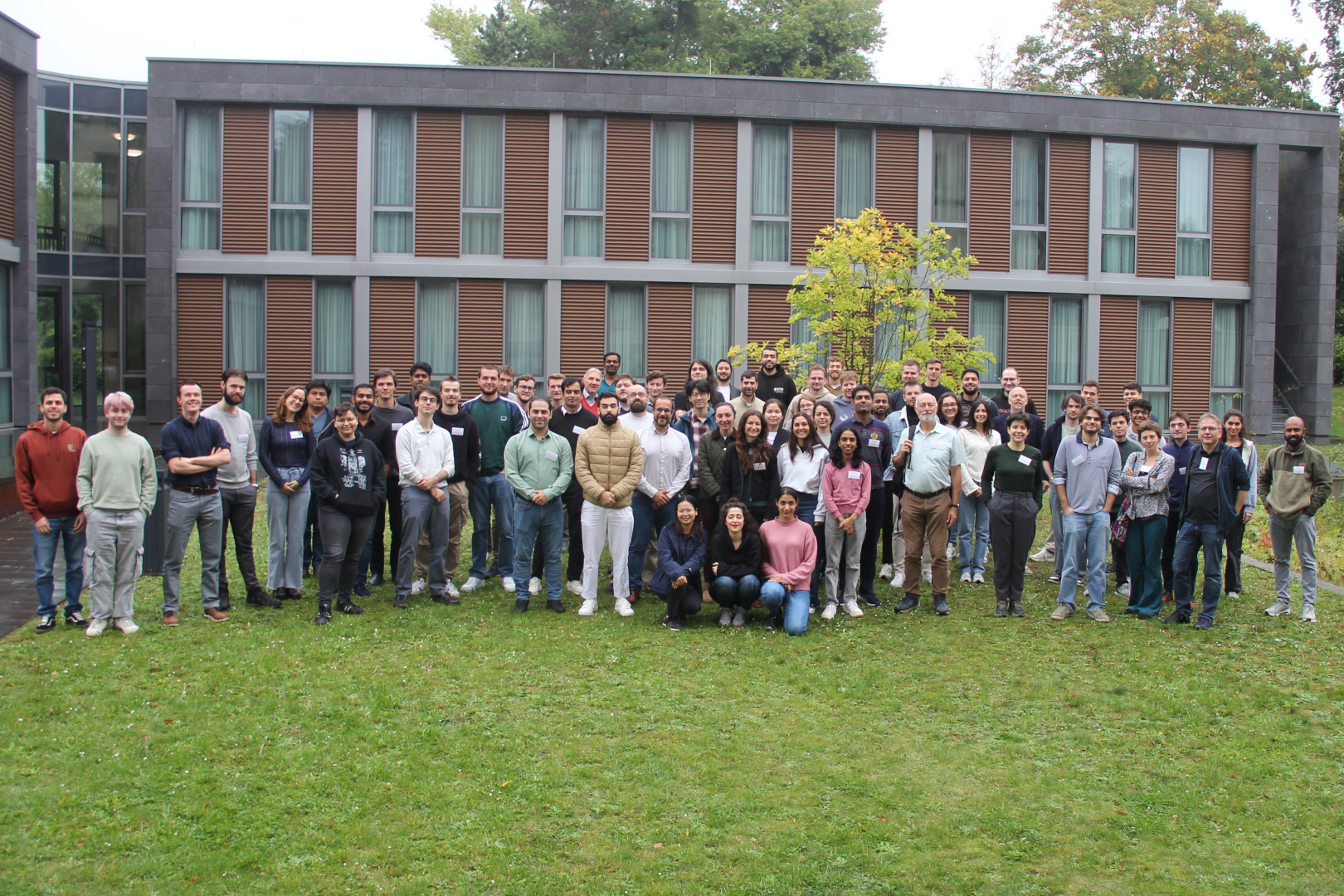
- Details
10th anniversary of the RAPP Center
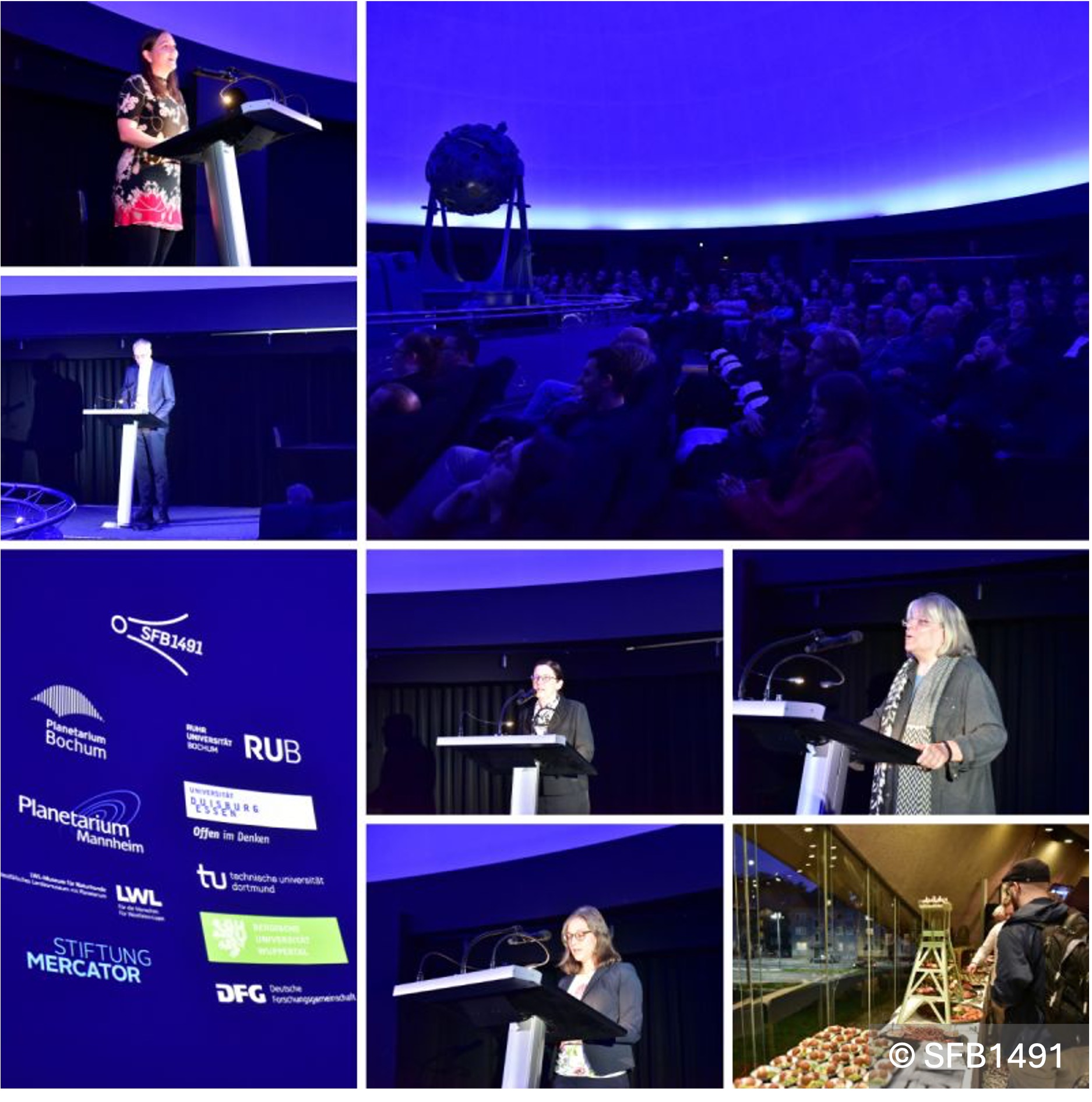 We were delighted to celebrate the 10th anniversary of the RAPP Center with some special events!
We were delighted to celebrate the 10th anniversary of the RAPP Center with some special events!
The celebrations began with a festive ceremony attended by representatives from all participating universities, including Prof. Albert (Rector of the University of Duisburg-Essen), Prof von Keudell(Prorector of Ruhr University Bochum), and Prof. McElvany (Prorector of TU Dortmund ) .
A true highlight of the evening was the premiere of our planetarium show „Unser exotisches Universum“ (“Our Exotic Universe”), which captivated the audience with fascinating insights into the science of our CRC.
The evening concluded with a reception and refreshments, providing a wonderful opportunity for conversation and connection.
The celebrations continued with a scientific conference featuring international invited speakers, held in the unique atmosphere of the German Mining Museum „Deutsches Bergbaumuseum“.
Over two days, participants engaged in stimulating discussions covering the wide range of topics represented within the RAPP Center. The event fostered lively scientific exchange and helped to strengthen the sense of community within our research network.
We are proud of what the RAPP Center has achieved over the past decade and look forward to many more years of exciting collaboration and discovery!
Picture: Some impressions from our premiere celebration.
- Details
In the Eye of the Plasma Storm
Researchers hope to use plasmas to make the production of hydrogen and steel more environmentally friendly. The key to this is a tornado that they generate in a lab.
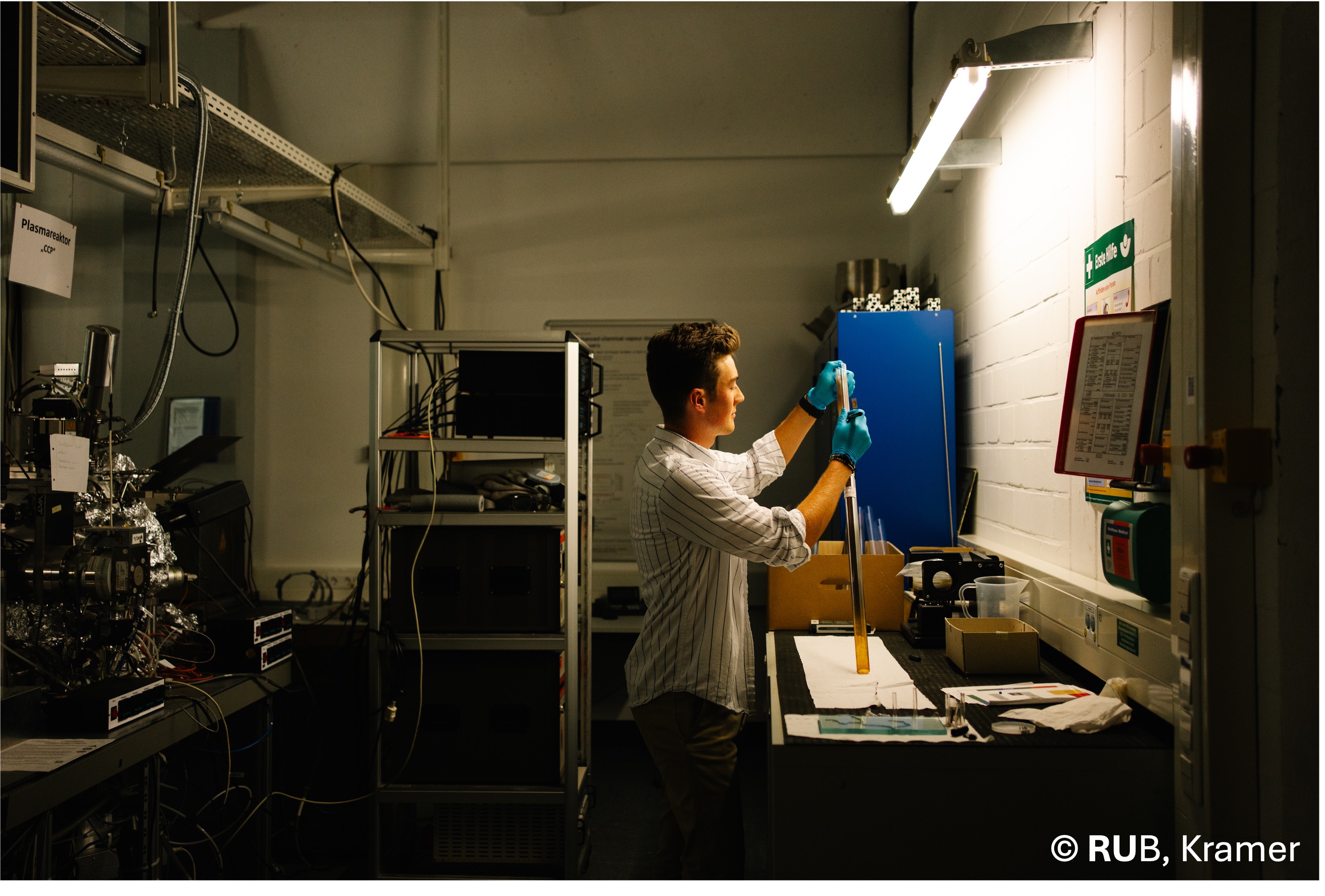 There is a storm brewing in the physics lab in Bochum, and talk of tornados and temperatures of thousands of degrees Celsius. Yet this has nothing to do with the climate: The labs house all manner of metallic devices with small windows that show colorful lights. These glowing objects within the reactors – which conveniently fit on a table – are plasmas. And they can do just about anything: Plasma can be used to sterilize surgical instruments, brighten displays, or facilitate energy-intensive industrial processes.
There is a storm brewing in the physics lab in Bochum, and talk of tornados and temperatures of thousands of degrees Celsius. Yet this has nothing to do with the climate: The labs house all manner of metallic devices with small windows that show colorful lights. These glowing objects within the reactors – which conveniently fit on a table – are plasmas. And they can do just about anything: Plasma can be used to sterilize surgical instruments, brighten displays, or facilitate energy-intensive industrial processes.
At Ruhr University Bochum, the team in the Department of Experimental Physics II, especially Physics of Reactive Plasmas, is working on the climate-friendly production of hydrogen that can then be used to produce green steel through the use of plasmas.
Environmentally friendly hydrogen production
Gray hydrogen is obtained through steam reforming of natural gas containing methane, which results in high carbon dioxide (CO2) emissions. A more environmentally friendly method involves producing hydrogen by splitting water with electrical energy from renewable sources. “This type of production of green hydrogen, as we call it, is inefficient, however,” says Professor Achim von Keudell, chair of the Department of Experimental Physics II in Bochum. This is why his group is focusing on something in the middle: turquoise hydrogen. Like gray hydrogen, this is acquired from methane, but with a different chemical process: methane pyrolysis. “The methane is heated to the point that it splits into hydrogen and carbon,” von Keudell explains. Carbon accumulates as a solid, not as gaseous carbon dioxide as is the case with gray hydrogen.
“Not all carbon is the same,” von Keudell continues. “If it’s sitting there as a plain briquet, all you can do is ignite it or put it back in the mine for storage. But there are also high-quality carbon nanoparticles that serve as the basis for industrial processes.” These are found in various products, from printer toner to car tires.
Carbon nanoparticles are a byproduct of the production of turquoise hydrogen via plasmas. “That makes this method of economic interest,” von Keudell notes. In his team, Dr. Simon Kreuznacht developed a plasma for this process during his doctorate.
Plasma tornado prevents reactors from melting
Plasmas can reach temperatures of thousands of degrees, and it is easy to reach the temperatures needed for methane pyrolysis. “You have to make sure the plasma doesn’t overheat to the point that the reactor melts,” says von Keudell. To prevent this, Simon Kreuznacht used a rotating flow: tornado plasma. The gas that plasma is made from is spun around upon being placed in the reactor and then heated up through microwave radiation. This results in a plasma tornado with a hot center of 3,500 to 5,500 degrees Celsius, and a cooler boundary zone, which itself is still around 1,700 degrees Celsius. While pyrolysis takes place in the hot center and creates hydrogen, the temperatures in the outer zone of the tornado are ideal for producing carbon nanoparticles.
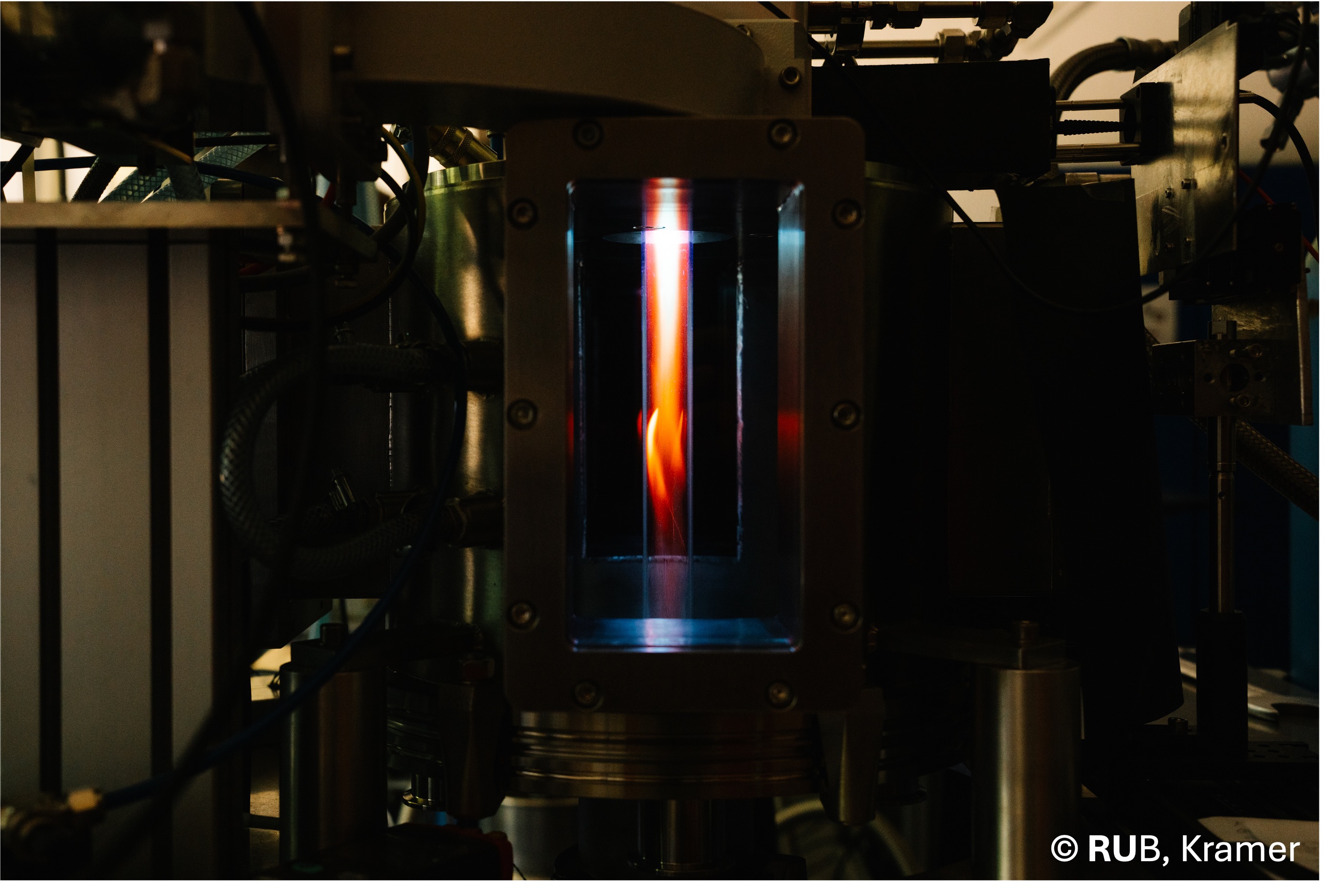 But tornado plasma is also useful for other processes, such as the production of green steel. Iron ore serves as the basis for steel production. It is comprised of iron in the form of oxygen-containing iron oxides. To extract iron from this, the ore has to be reduced: Electrons from another substance, known as the reductant, have to be transferred to the iron ore, whereby oxygen is released. Carbon in the form of coke is often used as the reductant. With the oxygen from the iron ore, it forms climate pollutants as waste products, like carbon dioxide or carbon monoxide. However, hydrogen can be used as the reductant instead of coke, with water as the resulting waste product.
But tornado plasma is also useful for other processes, such as the production of green steel. Iron ore serves as the basis for steel production. It is comprised of iron in the form of oxygen-containing iron oxides. To extract iron from this, the ore has to be reduced: Electrons from another substance, known as the reductant, have to be transferred to the iron ore, whereby oxygen is released. Carbon in the form of coke is often used as the reductant. With the oxygen from the iron ore, it forms climate pollutants as waste products, like carbon dioxide or carbon monoxide. However, hydrogen can be used as the reductant instead of coke, with water as the resulting waste product.
High-quality steel with the plasma process
Another crucial ingredient is needed in addition to a well-functioning reductant: a lot of energy. This is where plasma comes in. Doctoral student Jonas Thiel is currently optimizing tornado microwave plasma for steel production. This involves spinning plasma gas containing hydrogen to create another plasma tornado. The iron ore is blown into the center of the tornado as a powder and fed into a quartz pipe. Here, it is excited and heated by microwave radiation so that the hydrogen gas reaches its plasma state. In the center of the plasma tornado, the iron oxide from the powdered iron ore is converted into iron, which is later turned into an alloy with other elements to form steel. Unlike other blast furnaces, the plasma process creates particularly high-quality steel.
This process already works in principle. Thiel is now fine tuning it. Numerous aspects of the plasma reactor can be precisely adjusted to influence the reaction occurring inside, which sets the reactor apart from blast furnaces. “Our current challenge is that the quartz pipe containing the plasma gets coated with the resulting metal after a while,” says Thiel. The iron is expelled from the tornado like in a carousel and accumulates on the quartz wall. “When this happens, we have to pause the process and scrub it down”, he explains.
The researchers in Bochum are able to use various measurement processes to visualize the temperature distribution in the plasma reactor, thereby observing the lifecycle of the iron and iron oxide particles in detail. The team can determine where which particles are converted and how the chemical processes depend on the size distribution of the iron ore particles. In the future, they want to test what happens when they treat the iron ore particles in the hydrogen plasma for various lengths of time or in slightly different temperatures, which allows them to approach the ideal conditions for the process.
What the glowing reveals
The colorful glow of the plasma also helps them balance out the results, as it contains a wealth of information. The physicists represent it in the form of a spectrum, which indicates the wavelengths at which the plasma glows, and how intensely. Certain elements or molecules emit light at specific wavelengths, so the spectrum tells researchers which particles are present in the plasma. Thus, the glow is not just decoration in the lab, but a crucial source of information for the further development of processes that could make industrial processes more sustainable.
adapted from Julia Weiler (article link)
- Details
Several contributions on the International Conference on Phenomena in Ionized Gases (ICPIG)
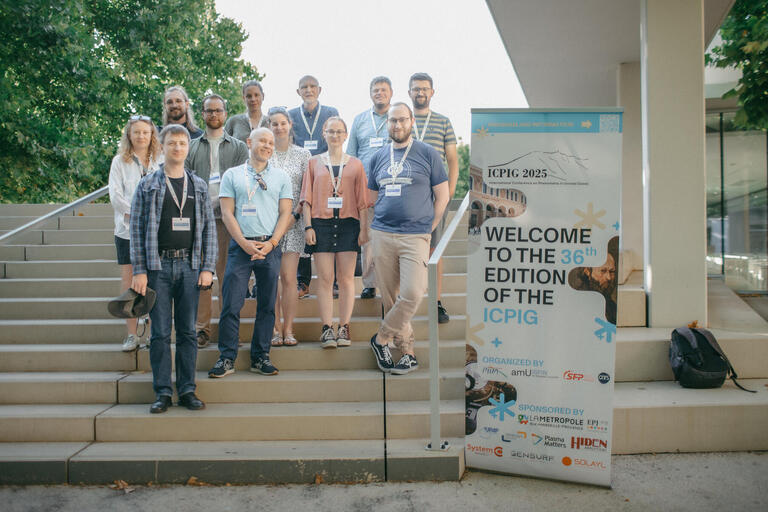 In July, the scientific work of the CRC 1316 has been presented in four talks and several posters in Aix en Provence during the ICPIG conference. At this conference, various fields within plasma physics are joined: Modelling and experiments, from fundamental research to applications. CRC Members from the physics, chemistry and engineering department contributed to the fruitful scientific exchange. One highlight was an excursion to the ITER site; the large research reactor for fusion, currently being built in Cadarache.
In July, the scientific work of the CRC 1316 has been presented in four talks and several posters in Aix en Provence during the ICPIG conference. At this conference, various fields within plasma physics are joined: Modelling and experiments, from fundamental research to applications. CRC Members from the physics, chemistry and engineering department contributed to the fruitful scientific exchange. One highlight was an excursion to the ITER site; the large research reactor for fusion, currently being built in Cadarache.
- Details
Premiere of the SFB1491 Planetarium Show
We are pleased to announce that the SFB1491 planetarium show Unser exotisches Universum will premiere on October 8, 2025, as part of the 10th anniversary ceremony of the RAPP Center.
The production offers audiences a unique glimpse into the wide-ranging research conducted within our CRC:
Combining cutting-edge scientific insights with visually stunning projections, the show takes viewers on a journey through the exciting world of modern physics and astrophysics — from experiments at the Large Hadron Collider (LHC) and cosmic rays in the Milky Way and other galaxies to stellar explosions and active galactic nuclei (AGNs).
Please note that the show is currently available in German only. An English version is in preparation.
Beginning October 12, the show will be presented regularly at the Planetarium Bochum and at other venues, including the LWL-Museum für Naturkunde mit Planetarium and Planetarium Mannheim .
Further information on the detailed schedule at the Planetarium Bochum can be found here.
Please also have a look at the RUB's News article on our show here.
https://www.youtube.com/watch?v=FmYDtF8V4OM?si=qsycfGYqsZnERfWR
- Details
Plasma experiments with the mouse
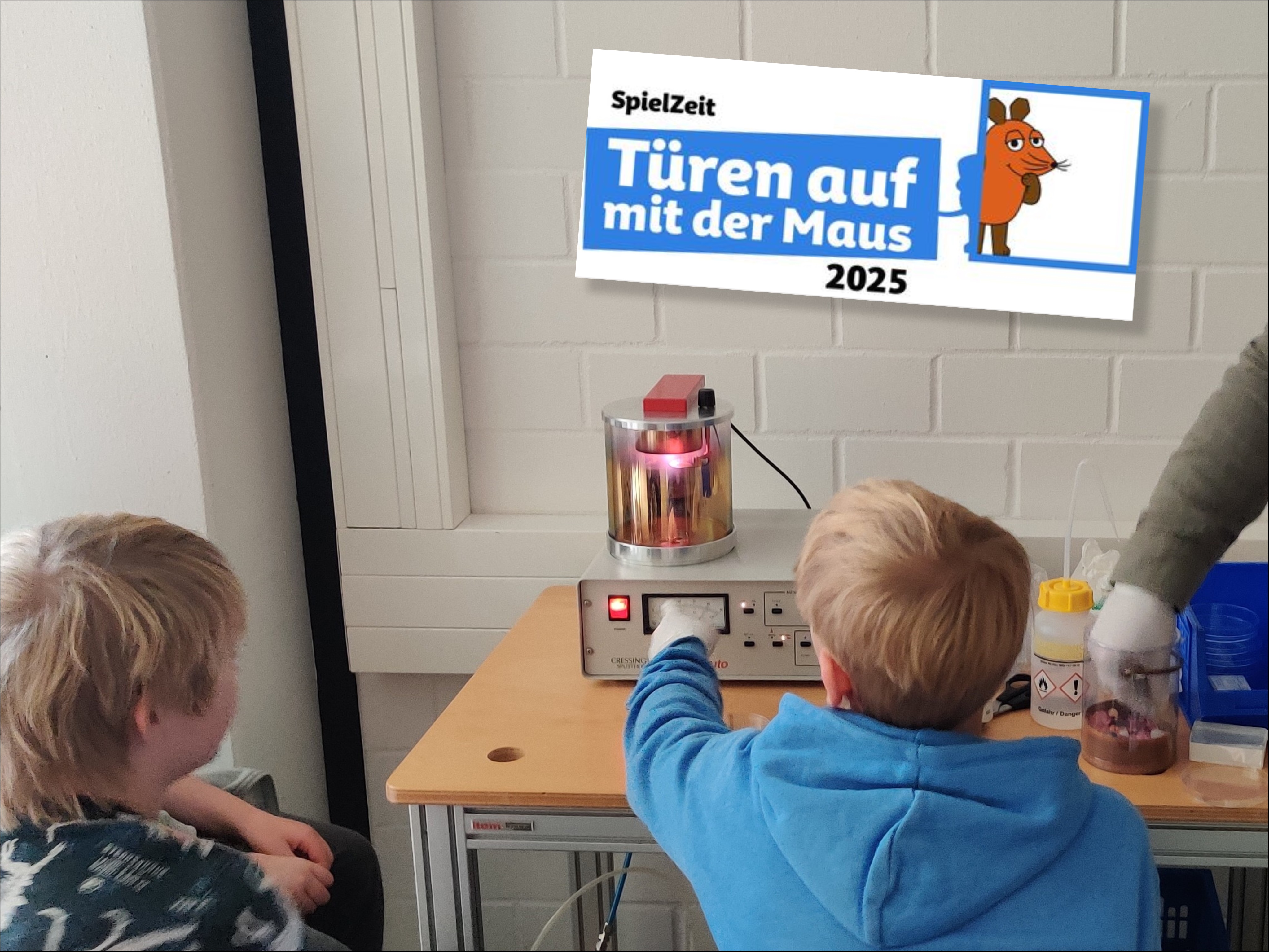 On 3th October, we celebrated the nationwide Mouse Day.
On 3th October, we celebrated the nationwide Mouse Day.
The Faculty of Physics at Ruhr-University Bochum invited children to discover the exciting world of physics and try their hand at lots of experiments.
In our workshop, the children were able to explore the glow of plasma and its applications. As a souvenir, the Mouse fans coated small ducks with gold using plasma.
- Details
Splinter Meeting at the German Astronomical Society Annual Meeting 2025
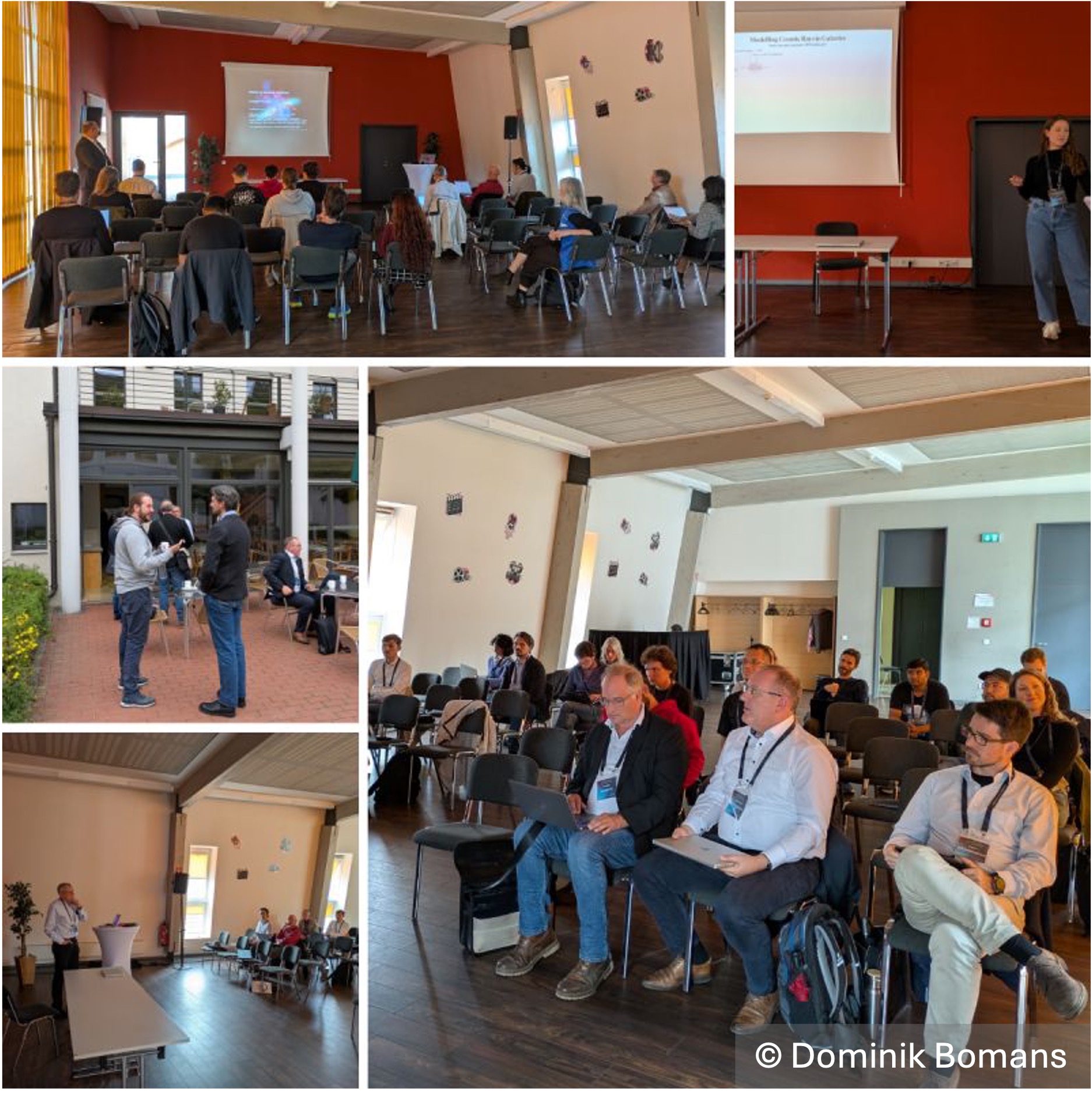 The CRC 1491 contributed to the 2025 Annual Meeting of the German Astronomical Society (Astronomische Gesellschaft) with the dedicated Splinter Session “Multi-messenger Signatures of Feedback Processes in Galaxies”, organized by Dominik Bomans and Dominik Elsässer.
The CRC 1491 contributed to the 2025 Annual Meeting of the German Astronomical Society (Astronomische Gesellschaft) with the dedicated Splinter Session “Multi-messenger Signatures of Feedback Processes in Galaxies”, organized by Dominik Bomans and Dominik Elsässer.
This session brought together experts to discuss recent advances in understanding feedback mechanisms in galaxies through multi-messenger and multi-wavelength observations. The presentations and discussions explored how active galactic nuclei, massive stars, cosmic rays, and magnetic fields shape the interstellar medium, drive turbulence, and influence cosmic ray transport.
The full program can be found here.
- Details
Exciting News in Plasma Physics and Dark Matter Research
A recent study by the scientist Kevin Schoeffler, together with his colleagues Nitin Shukla (CINECA High-Performance Computing Department, Italy), and Luis Silva (Universidade de Lisboa, Portugal), has set a strong upper bound on long-range dark matter interactions through plasma physics. The research explores the intriguing possibility that dark matter could be charged under a unique “dark electromagnetism” (dark-EM), causing it to behave like a cold collisionless plasma.
Using advanced simulations, the team discovered that plasma instabilities could lead to significant slowdowns in dark matter dynamics.
Interestingly, astronomical observations of colliding galaxy clusters like the so-called „Bullet Cluster“ only fits to their findings if the interaction strength is extremely weak. As a result, they established a strong upper bound on the dark electromagnetic self-interaction constant.
This new constraint is much stronger than previous limits, suggesting that dark electromagnetic interactions are highly restricted.
This research not only advances our understanding of dark matter but also opens new avenues for further exploration and verification through observational measurements.
Read the full article here:
Can plasma physics establish a significant bound on long-range dark matter interactions?
K. Schoeffler N. Shukla and L. O. Silva, Phys. Rev. D 111, L071701
And please have a look at the popular science article here:
Intergalactic Collision Constrains Dark Electromagnetism
Physics 18, s48
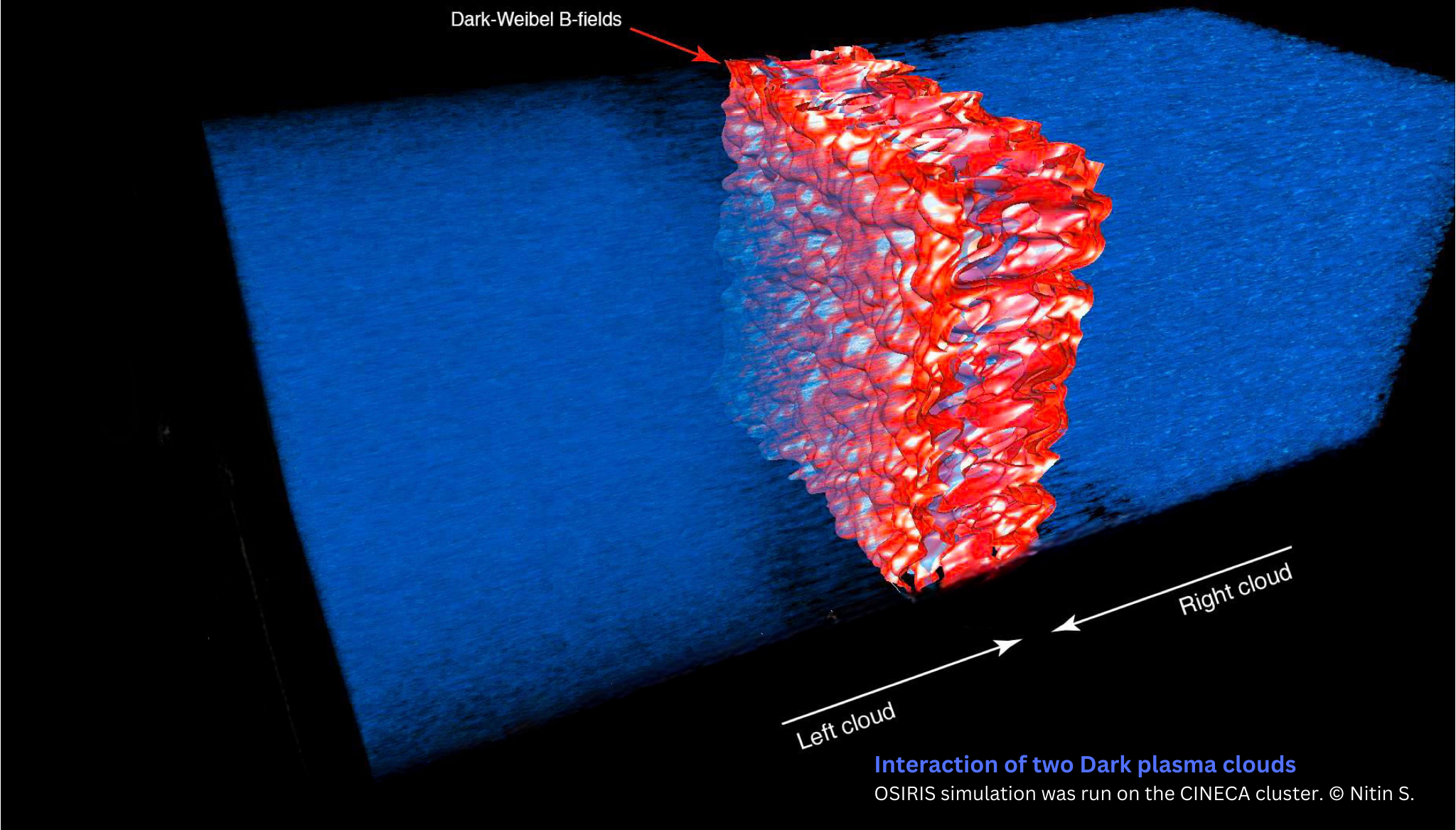
Picture: Counterstreaming slabs of dark matter plasma, shown in blue, are slowed down while interacting with dark magnetic fields, shown in red, which are generated by kinetic plasma instabilities.
- Details
Lab visit in Brazil
From Bochum to Brazil! Sarah Thiel set off on her journey and spent an exciting exchange semester at the Universidade Federal de São Carlos (UFSCar) in Brazil. Sarah is studying for a master's degree in biology at the RUB and is conducting research on enzyme immobilization in a project run by SFB1316. In Brazil, she continued working on her research project and learned new methods. But outside of research, Sarah also learned what it's like to live alone in a completely foreign country – with a new language, new people, and a completely different culture. In addition to new friendships, she brings back great impressions of everyday life in Brazil and unique experiences.
The stay took place as part of the Research School's Visiting International Professor Program, which is made possible by a cooperation between RUB and UFSCar. The research stay was funded by SFB1316.
